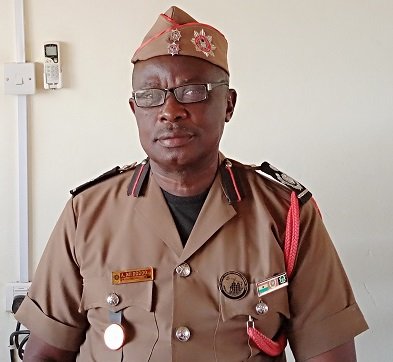Hot!
‘Firefighting is shared responsibility’

Since firefighting is a shard responsibility, the Ghana National Fire Service (GNFS) in the Upper West Region has called for the establishment of Bush Fire Prevention Committee at the district and regional levels respectively.
The command maintained that the Provisional National Defence Council (PNDC) Law 229 which established the GNFS made provision for the setting up of such committees to facilitate the prevention and combating of accidental fires at the district and regional levels effectively.
In an interview with The Spectator Newspaper at Wa on Tuesday, the Regional Commander, Assistant Chief Fire Officer (ACFO) Mr. Abraham Nii Dodoo said successful firefighting relied on joint efforts of the GNFS and other institutions.
“The Law 229 directs every District, Municipal or Metropolitan Assembly to form these committees with stakeholders from the assembly, the Ghana Water Company Limited (GWCL) or Community Water and Sanitation Agency (CWSA), Electricity Company of Ghana which in our case will be the Northern Electricity Distribution Company (NEDCo), a representative from the traditional council and two other appointed members, with the District Chief Executive as the Chairman of the committee”, he said.
He noted that a similar team was supposed to be replicated at the regional level where information about fire safety from the district level was brought to the fore for redress and said the collaboration among the aforementioned stakeholders was very paramount in firefighting.
“So for instance the GWCL or the CWSA is responsible for the provision of fire tenders at vantage points to enable the GNFS draw water when the need arises to fight fire hence a committee of that nature would ensure that we work together to identify key areas where the tenders will be needed as well as work on existing fire tenders with low pressure,” he explained.
He stated again that traditional authorities also had the responsibility of assisting the service to engage community members on the dangers of bush fires and their implication on the local economy.
“These committees when established will boost our collaboration with other stakeholders and ensure that we work collectively to prevent and fight accidental fires”, he said.
He stressed that most importantly the GNFS was inaugurating fire safety volunteers in the region who could depend on the support of the bush fire committees for the supply of some basic implements they needed for the work.
“These volunteers as their title suggests are not paid but a little motivation from the assemblies within which they are located will boost their ability to work harder for the district. We as a service can only provide them, with wellington boots and identification cards, among others but when it comes to fuel and other petty items such as whistles, the district assembly can dedicate a little of its common fund to support and make them more effective”, he said.
He appealed to the MMDAs in the region to prioritise the setting up of those committees in order to support firefighting agenda in the region.
From Lydia Darlington Fordjour, Wa